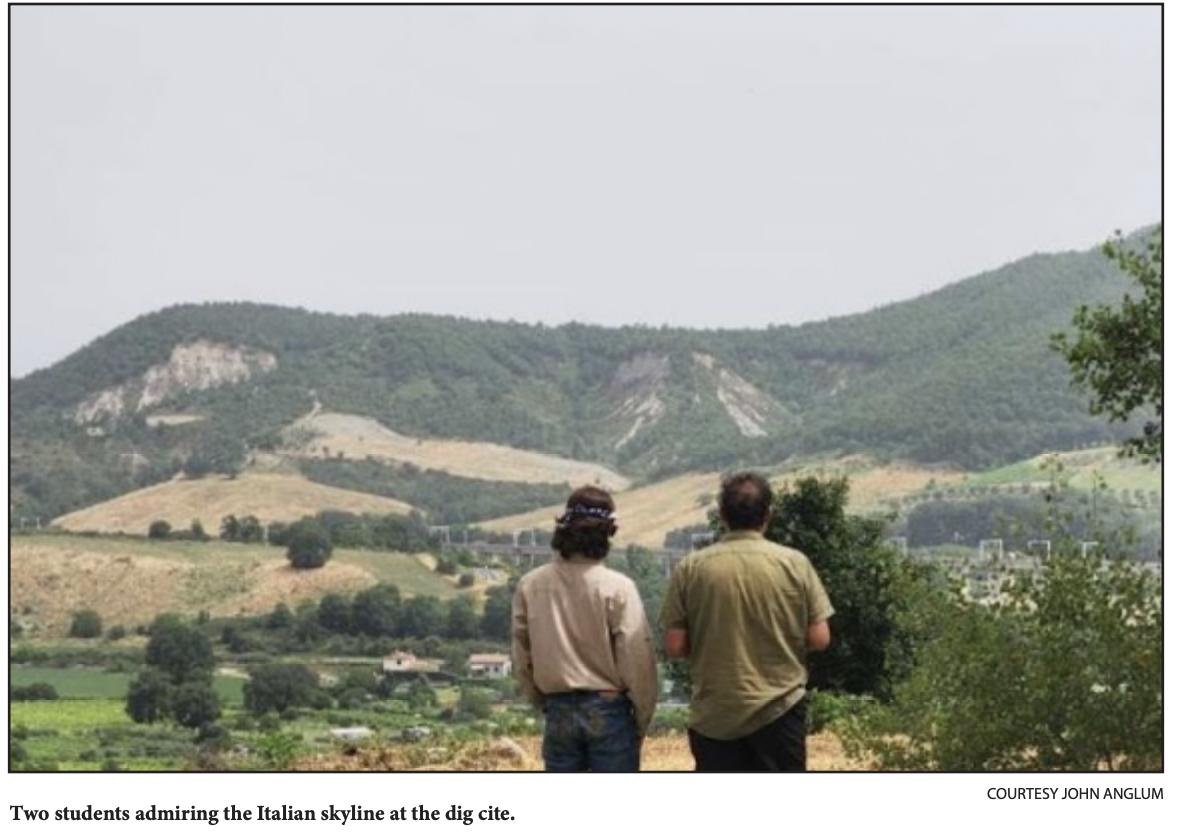Is the Classics department at Saint Anselm ancient history? As a student in this department, I am used to justifying my choice of major to my parents over the phone every other week. But lately, many students currently studying Classics and Classical Archaeology feel that the administration of Saint Anselm College is struggling to justify maintaining their discipline. Classics at Saint A’s has remained largely changeless until recently: just last year, the Classics department was quietly merged with the History department. (This change was only formally announced to a select number of History students through an email from Department Chair Dr. Mazur.) Along with the merge, the Classics professors’ offices were moved from the third floor of Alumni Hall, where they had been for decades, to scattered corners of Bradley House. The class of 2029 is the largest in college history, and yet not one incoming freshman has yet declared themselves a Classics or Classical Archaeology major. Enrollment in ancient Greek and Latin courses has been unusually low, as well. Last year, the Modern Languages department was down yet another program, German, after already having shrunk a few years ago after Russian was quietly discontinued. (No official announcement came from the college about either of these losses.) The Classics department has always been modest in size—an alumna ‘99 reported that she was only one of five Classics majors in her class—but with the college’s shifting priorities, namely the promotion and growth of the Nursing program and the reduced emphasis on the traditional Western canon in Conversatio, some students fear that the Classical languages may suffer the same fate as Russian and German, though no word from the college’s administration suggests any such change. [On October 2nd, President Favazza announced SAC’s fiveyear plan Ascent to the Hilltop, which seeks to “implement a curriculum that reimagines the liberal arts” sparked by “external pressure[s] from an increasingly shifting higher education landscape, an overall negative perception of liberal arts colleges, and demographic challenges in the Northeast.” So maybe our school’s touted identification with tradition in the liberal arts won’t save its humanities programs as they try to “best allocate resources to maintain high education standards” in programs aligned “with evolving student interests, societal needs and career pathways.”] A discipline, such as Classics, demands that its students (and its instructors) have an exceptional passion for their choice of study; no one chooses to study ancient Greek for its future job opportunities. Dr. Gonzales, a professor and Director of the Classics program and Archaeological Field School, says that he chose to study Classics “for the same reason I think it’s worthwhile for students: it’s the original interdisciplinary liberal arts major and so trains one’s mind in the methods of multiple important liberal arts [such as] language, history, art and art history, archaeology, philosophy, theology…our studies allow us to engage the materials <>—we don’t need to depend on someone’s translation of an ancient text or their interpretation.” While not all students can adopt a curriculum revolving solely around the study of the ancient Greeks, Egyptians and Romans, some of its offered courses have practical applications in other disciplines. STEM and English majors should consider enrolling in a Latin or ancient Greek class, for an estimated ninety percent of English medical terms have Greek or Latin origins, and around seventy percent of everyday English words are derived from Latin roots (two thirds of the remaining words come from Greek). Anyone theologically inclined should have some proficiency in Greek and Latin to understand the nuances in the language of the Gospels or to appreciate St. Jerome’s Vulgate. All hope is not lost for Classics at Saint A’s. The Classics Society, run by President Megan Brewer and Vice President Maddi Trisket, had a great turnout at their first meeting where teams competed in a Jeopardy-style game of Classical trivia. At their most recent meeting, Will Dervin, a Classical Archaeology major ‘26, presented his summer research on an Etrusco-Roman excavation site in Italy. The club has many more exciting events planned for the fall and spring semesters, including an ancient “scary stories” night near Halloween, pottery painting, a trip to the Boston MFA and their annual Floralia festival at which students compete for glory in athletic competitions. Details for all upcoming events can be found on their Instagram page @sacclassics or through their email, ClassicsSociety@anselm. edu. For any current students of Greek or Latin, The Classics Society offers free tutoring at 12:30 every Wednesday in Alumni Room 7. In times such as these, Dr. Gonzales reminds us that “the ancient world is not gone and vanished, but is around us all the time and can help us interpret almost innumerable aspects of the modern human experience.”
Classics Department on the decline amid mass changes
Krista Carroll, Crier Staff
October 9, 2025
Story continues below advertisement
0


